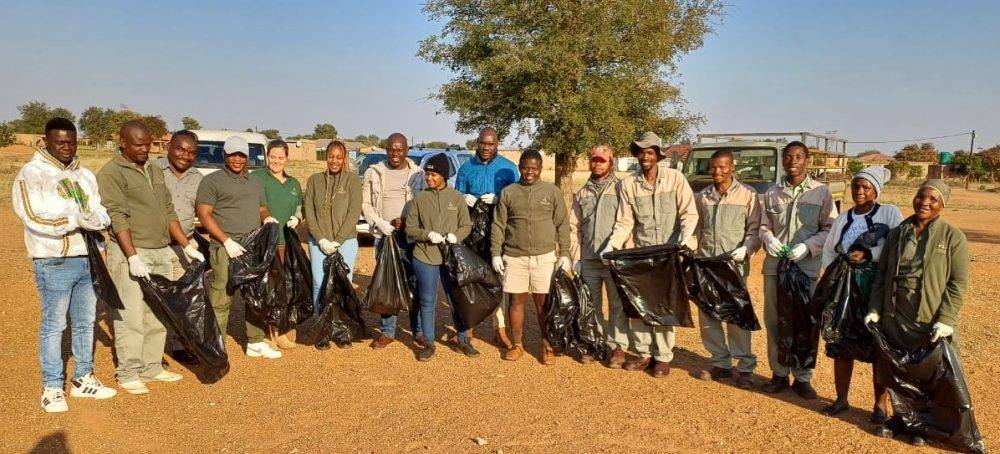Lapalala Wilderness School founded more than 30 years ago by Clive Walker and Dale Parker, works to bring young people into the environment by helping them discover the value of nature.
In celebration of World Environment Day on 5 June, Mashudu Makhokha, the school’s director said it was particularly special for them this year as they were able to celebrate the day in Shongoane village in Limpopo’s Lephalale district.
“We started the day early in the morning with the clean-up campaign involving the community, making them aware of ensuring they keep their environment clean,” he said.
“There is a stream that cuts across our reserve called the Palala and it passes through the community. Inside our reserve, the stream is clean but when it gets to the village’s section sometimes rubbish is dumped into the stream, creating all sorts of environmental problems.”
Makhokha said they had one-on-one conversations with them about the importance of keeping the environment clean.
“Communities need to realise that if they have pristine surroundings their environment will work as a system again. Things that are supposed to be part of that system will come back,” said Makhokha.
This year the theme of the day was beat plastic pollution.
According to the UN Environment Programme: “The world is being inundated by plastic. More than 400 million tonnes of plastic is produced every year, half of which is designed to be used only once. Of that, less than 10% is recycled. An estimated 19-23 million tonnes end up in lakes, rivers and seas. Today, plastic clogs our landfills, leaches into the ocean and is combusted into toxic smoke, making it one of the gravest threats to the planet.”
Makhokha said this year they wanted to do things differently. Instead of bombarding the community with heavy jargon they invited a guest speaker who converts waste into usable items such as bricks, brooms and charcoal.
Phathutshedzo Mudau of Dziphathu Green Tech, said he was delighted to speak at Shongoane about the many ways in which they can reuse waste.
“My main focus was to tell the community about how they can benefit from the waste that they are generating. So I told them about the plastic bricks, charcoal briquettes and brooms that we are manufacturing at Dziphathu Green Tech. I also shared with them ways they can benefit from the waste if it is not processed, such as sorting the waste and sending it to companies that process the waste,” said Mudau.
Mudau said the community was enthusiastic about cleaning the environment and keeping it plastic free.
“They are interested and they thoroughly understand the message. They are keen to implement everything that we taught them today,” he said.
Mudau added that the community also asked that he set up a station in Shongoane so that they have someone to guide them while becoming more environmentally friendly.
Makhokha also noted the positive response from the community, who saw cleaning up as an opportunity for employment and a way out of poverty.
“We have told the community to go and collect plastic waste and call us. We will then demonstrate how to make an eco brick from it, for example, or a broom which they can sell and make a living from as a result,” said Makhokha.
Makhokha added that these community initiatives were received well, particularly by women and young adults who are not working.
“Part of our mission is to help our children and young adults discover the value of biodiversity and their place within that biodiversity,” said Makhokha.
It is important that the youth plays a leading role as they will leave a legacy for their children in terms of having an environment that is clean and functional.
The Lapalala Wilderness School engages communities about sustainability initiatives throughout the year.
“We bring learners from schools in the Lephalale municipality to come to the Wilderness School where we talk about the environment and sustainable living, but today was an opportunity for the children and their families to reinforce the message that they were learning at the Wilderness School,” he said.
“With this knowledge parents can form small enterprises to alleviate poverty in their homes.”
Makhokha said that under the theme #BeatPlasticPollution, Lapalala Wilderness School will continue to teach communities about the importance of recycling and ways to turn plastic into items that can generate an income for families.
“Lapalala Wilderness School celebrates environment day everyday,” said Makhokha.
Lesego Chepape is a climate reporting fellow, funded by the Open Society Foundation for South Africa



